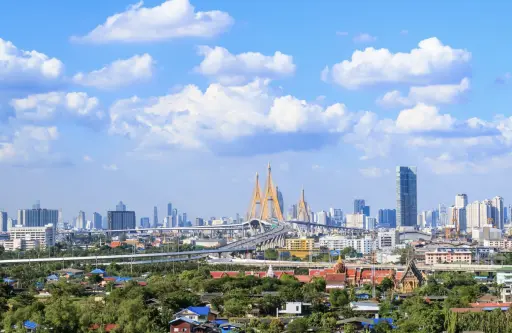Retirement Visa in Thailand: A Comprehensive Guide

Thailand has long been a favored destination for retirees, thanks to its warm climate, affordable cost of living, and vibrant culture. For those wishing to spend their retirement years in the Land of Smiles, the Thai government offers the following visa for pensioners:
• The Non-Immigrant O-A Visa
• The Non-Immigrant “O” Visa
• The Non-Immigrant O-X Visa
• The Long-Term Residency (LTR) Visa
While the non-immigrant O-A visa is the most common visa type among retirees in Thailand, the non-immigrant type O-X and LTR are offering additional benefits for the visa holder. This article is discussing the requirements of the Non-Immigrant )-A Visa type.
Qualification
To qualify for the Thai retirement visa, there are specific financial and procedural requirements to meet. Firstly, applicants must be at least 50 years old. The financial requirements can be met in two primary ways: maintaining a balance of at least 800,000 THB in a Thai bank account, as evidenced by a bank statement, or having a monthly pension income of at least 65,000 THB. A combination of these two options is also acceptable. The retirement visa is initially valid for one year and allows you to enter and leave Thailand as often as you like within that year. However, while residing in Thailand, you must report to the local immigration office every 90 days.
Application Process
The application process for the retirement visa varies depending on whether you are already in Thailand or applying from your home country. If you are already in Thailand on a tourist visa or visa exemption, you can convert this to a non-immigrant visa at the Immigration Office. Your current permission to stay must be valid for more than 15 days at the time of application, and you must present a bank statement or proof of a monthly pension certified by your home country’s Embassy or Consulate in Thailand. For the subsequent one-year retirement visa application, your bank statement must show that funds have been held for at least 60 days.
If you are applying from outside Thailand, you can obtain a one-year retirement visa directly from a Thai embassy or consulate in your home country. Similar financial requirements apply, either a bank balance of 800,000 THB or a monthly pension of 65,000 THB. It is recommended to obtain a multiple re-entry permit to avoid the hassle of getting a new permit each time you leave Thailand. For renewing your retirement visa at the Immigration Office in Thailand the following year, the bank statement must show that funds have been held for at least three months, or you must prove a consistent monthly pension or income throughout the year. Certification by the Embassy or Consulate is not required for renewals.
While the requirements and procedures might seem complex, understanding and preparing the necessary documents in advance can simplify the process. Consulting with FRANK Legal and Tax ensure a smooth application. We can support you with the application for all of Thailands Visa and offer expertise in corporate and taxation matters as well.
Conclusion
Navigating the legal requirements for a retirement visa in Thailand is a structured process that ensures retirees can enjoy their golden years in this beautiful country. By adhering to the age, financial, and health insurance requirements, and maintaining compliance with immigration reporting rules, retirees can secure a smooth and legally sound transition to life in Thailand. Understanding these legal nuances not only facilitates the visa application process but also helps in enjoying a stress-free retirement.
This article was written by Andreas Seela , lawyer at FRANK Legal and Tax. If you have any questions, please feel free to contact us at info@franklegaltax.com or via +66 02 026 3284.


